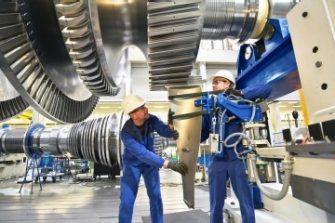What is engineering?
We offer flexibility and choice in our engineering programs. We're the largest engineering faculty in Australia.

Every industry needs engineers and it’s an occupation with a wide reach. Engineers can work on developing wearable technologies for the healthcare industry, setting up explosions for a TV or film production set, or developing the design for the tallest building in the world.
At UNSW Engineering, we offer the widest choice of engineering programs of any university in Australia, with over 20 undergraduate specialisations. Some of our most popular include Aerospace Engineering, Biomedical Engineering, Civil Engineering, Environmental Engineering, Computer Engineering and Food Science. Our bachelor degrees are designed to get you ready to work in the real world, with 60 days of approved industry training incorporated into our programs.
Our Master of Engineering degrees are globally recognised and accredited with Engineers Australia and recognised through the Washington Accord. We offer more postgraduate specialisations than any other university, allowing our students to develop career paths in multiple industries.








